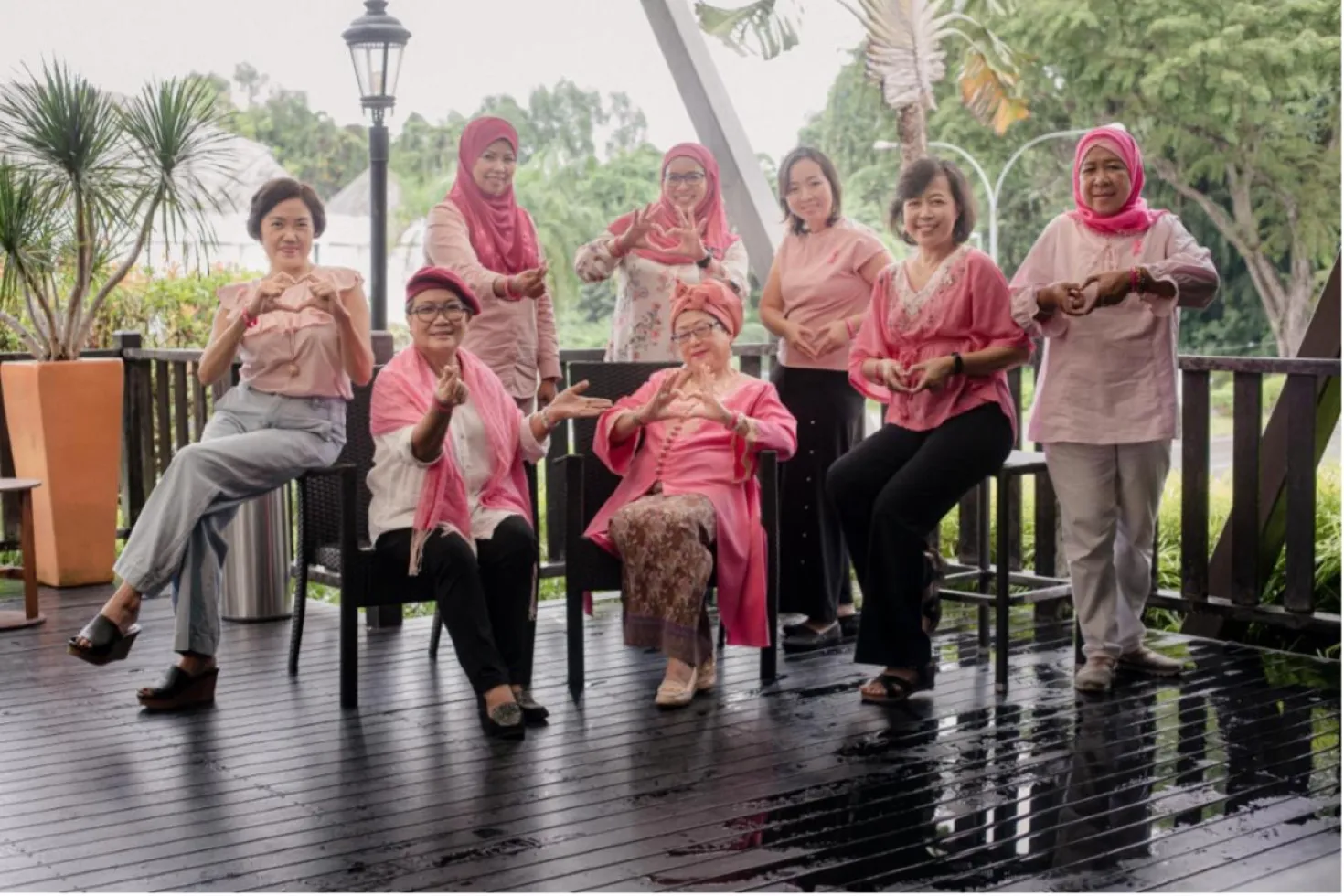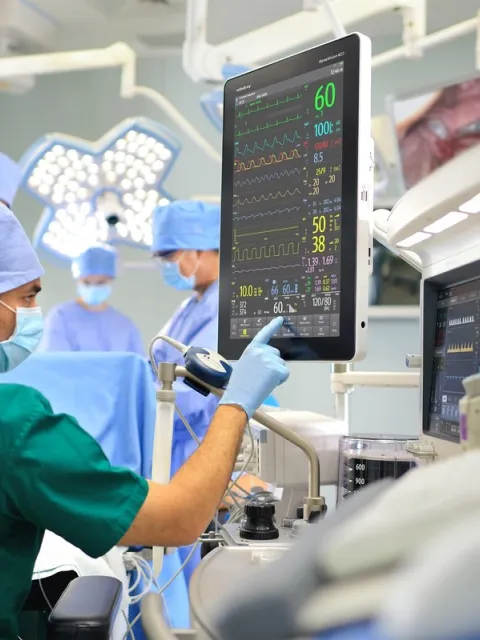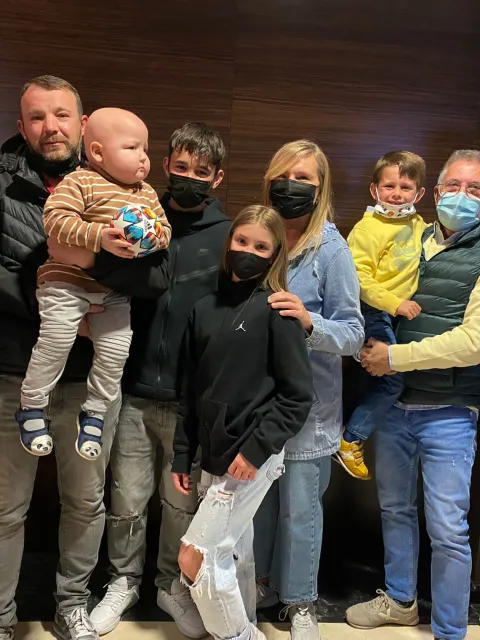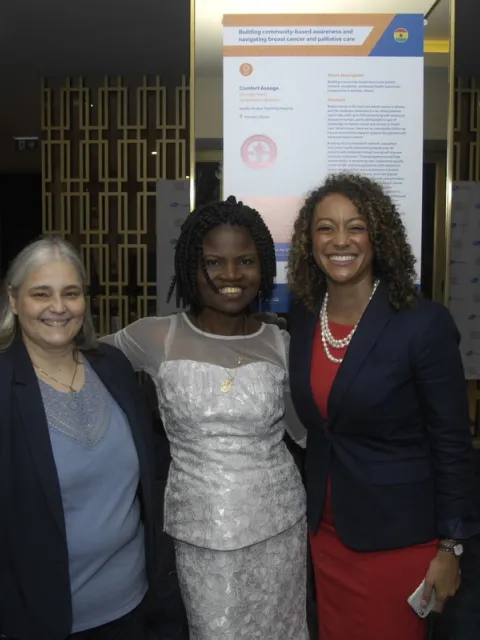Grants for the early detection of breast cancer
As part of its Breast Cancer programme, UICC has awarded 19 grants to UICC members to support evidence-based projects focused on improving the availability of and access to early detection of breast cancer.

Breast cancer is the most commonly diagnosed cancer in women. If detected early enough, however, it can be treated successfully. Yet in many parts of the world, notably in low- and middle-income countries, breast cancers are detected at more advanced stages, when the disease has spread to another part of the body. Through early detection and the downstaging of disease, significant progress can be made in reducing global breast cancer mortality.

Building on UICC's ongoing grant portfolio, and specifically, the SPARC Metastatic Breast Cancer Challenge – a grants initiative that enabled the launch of 51 new projects addressing the needs of advanced breast cancer patients from 2015-2019 – UICC awarded since 2022 19 grants of up to USD 20,000 each to projects offering an evidence-based approach to improving the availability of and access to early detection. Projects were implemented for a duration of one year and enabled 45,552 women to be examined for breast cancer, 2,536 health care professionals trained on early detection and 632,029 people reached by awareness campaigns, events, and breast cancer information.
Focus areas of awarded organisations
The grants address two of the three pillars of the WHO Global Breast Cancer Initiative, which aims to avert 2.5 million deaths by 2030, namely health promotion and early detection, and timely diagnosis. The projects supported focused on the following topics:
- Promotion of breast health, breast cancer symptoms and addressing the stigma of the disease, encouraging individuals to seek medical advice as early as possible.
- Training of health care workers to identify symptoms and help patients navigate through the health system and services.
- Connecting hard-to-reach populations to existing services where available.
- Improving the coordination of services and referral systems for timely and quality diagnosis.
- Advocacy campaigns leading to broad stakeholder engagement and additional resources for early detection.
The review and selection process for the grants sought to ensure that any project supported included access to referral systems and follow-up treatment and care for those diagnosed, of critical importance where efforts to increase early detection and timely diagnosis are being implemented.
Review committee 2022
The 15 organisations were shortlisted out of 71 applications reviewed by an independent Review Committee consisting of 13 international experts in breast cancer, chaired by Dr Julie Gralow, Chief Medical Officer and Executive Vice President of the American Society of Clinical Oncology (ASCO).
- Anna Cabanes, Senior Advisor, Global Focus on Cancer, USA
- Corinne Balleyguier, Radiologist, Gustave Roussy, France
- Freddy Gnangnon, Professor of Surgical Oncology, Faculty of Health Science Cotonou, Benin
- John Scheel, Associate Professor, University of Washington, USA
- Leshia Hansen, Cancer Screening and Prevention Content and Board Manager, US NCI, USA
- Maira Caleffi, President, FEMAMA, Brazil
- Maurício Magalhães Costa , President, International Senology Society, Brazil
- Miriam Mutebi, Vice President, AORTIC, Kenya
- Mishka Cira, Public Health Advisor, National Cancer Institute, USA
- Ranjit Kaur, Board Member, Reach to Recovery International, Malaysia
- Saunthari Somasundaram, President, National Cancer Society of Malaysia, Malaysia
- Temidayo Fadelu, Physician Medical Oncology, Instructor, Dana-Farber Cancer Institute, USA
- Verna Vanderpuye, Consultant, National Center for Radiotherapy, Ghana
“Survival rates for breast cancer are highest when it is detected early, accompanied by timely access to treatment,” said ASCO Chief Medical Officer Julie R. Gralow, MD, FACP, FASCO. “It’s critical that we support innovative programs enabling early diagnosis for all patients so they may have the best chances for a good outcome. We applaud these new grants for organizations working to improve early detection as an important step toward this goal.”
– Dr Julie Gralow, Chief Medical Officer of the American Society of Clinical Oncology
Projects awarded
African region
Botswana
Demonstration of a scalable breast health care pathway
Project leader:
Kirthana Sharma
Kenya
Education and training of frontline healthcare providers to improve early detection of breast cancer
Project leader:
David Muyodi
African Region/ Canada
Breast aware: A train the trainer programme for nurses in Cameroon, Ghana, Nigeria, Uganda and Tanzania
Project leader:
Patsy Yates
Tanzania
‘Reach and Teach’- Increasing community awareness of breast cancer
Project leader:
Nazima Dharsee
South Africa
Expansion of breast cancer screening to Limpopo
Project leader:
Renee Goedhals
Rwanda
Breast cancer early detection and care coordination
Project leader:
Niyibizi Asuman Brandon
Uganda
Improving early breast cancer diagnosis through training of village health team and patient navigation
Project leader:
Gertrude Nakigudde
Americas region
El Salvador
Improving early diagnosis of breast cancer in a public healthcare network
Project leader:
Lisseth Guadalupe Ruiz de Campos
Brazil
Expanding access to genetic and genomic tests in cancer
Project leader:
Gabriel Morás
Nicaragua
Enhancing early detection and access to breast health services in Río San Juan
Project leader:
Orlando Benito Martinez Granera
Asia-Pacific region
Nepal
Training primary health workers to improve early breast cancer detection
Project leader:
Asmita Rana
Sri Lanka
Early detection of breast cancer through awareness campaigns
Project leader:
N Lanka Jayasuriya Dissanayake
Mongolia
Improvement of breast cancer screening adherence in a rural area
Project leader:
Tsetsegsaikhan Batmunkh
Malaysia
Beyond breast cancer awareness in rural Sarawak - a documentary of outreach programmes
Project leader:
Melissa Siaw Han Lim
Vietnam
Breast cancer awareness and training for women and community health workers in an ethnic minority
Project leader:
Tran Huong
Malaysia
Sustainable community navigation for early breast cancer diagnosis among disadvantaged urban communities in Selangor
Project leader:
Nur Aishah Taib
Eastern Mediterranean region
Jordan
Breast cancer screening advocacy workshops
Project leader:
Reem Al-Ajlouni
Libya
Enhancing breast cancer knowledge and clinical skills of healthcare providers
Project leader:
Muna Abusanuga
Europe region
Kyrgyzstan
Diagnostic mobile mammography integration with CBE for early detection in rural Naryn
Project leader:
Nargiza Bakirova

UICC has a long history of building capacity for cancer organisations globally through grant making.
Grants

Following the Russian invasion of Ukraine, UICC set up a Solidarity Fund in response to its members’ requests to bridge funding into the region to support the needs of cancer organisations struggling to assist patients affected by the conflict.
Solidarity Fund to aid Ukrainian cancer patients

Metastatic Breast Cancer (MBC) accounts for 90% of breast cancer deaths. To tackle this growing cancer burden in 2015 UICC teamed up with Pfizer Oncology to launch the Seeding Progress and Resources for the Cancer Community (SPARC) MBC Challenge
Addressing Metastatic Breast Cancer (MBC)
Last update
Wednesday 01 October 2025